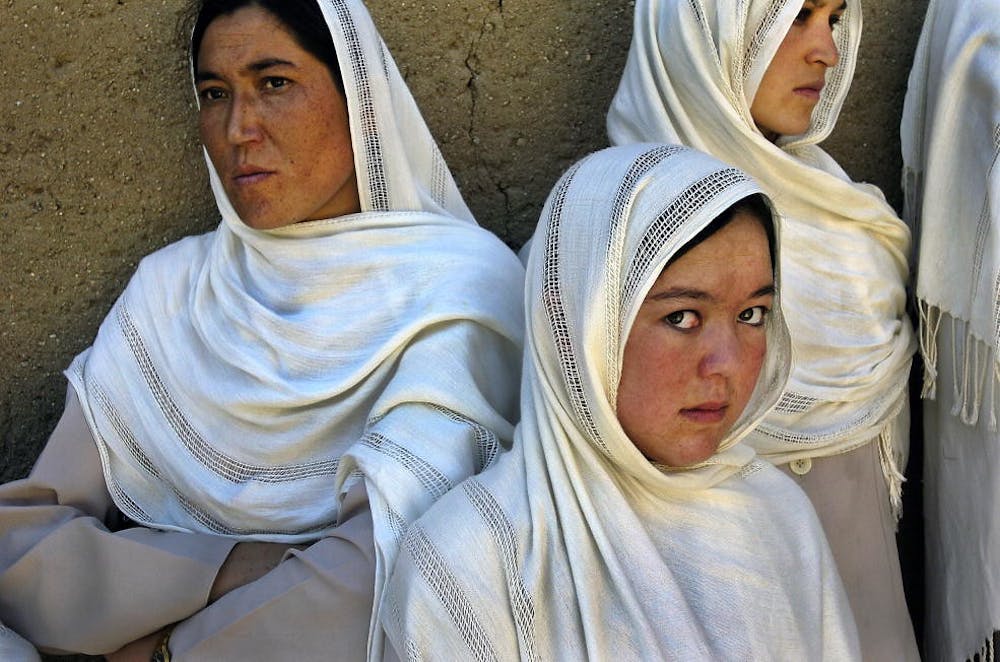“One Year On: The Pervasive Health Challenges in Afghanistan” is a four-part webinar series that invites panelists to talk about the ongoing health crises in Afghanistan after the regime change in 2021. Its second part, which took place on Nov. 8, focused on reproductive, maternal, newborn and child health (RMNCH) in Afghanistan.
Nadia Akseer was the moderator of the webinar. She is an assistant scientist at the Department of International Health at the Bloomberg School of Public Health and the founder of Mission Afghanistan 2030, an initiative that aims to synergize global efforts to address health issues in Afghanistan. Her research focus is on women and children’s health and nutrition in low- and middle-income countries.
Because of the regime change in August of 2021, many donors withdrew their funding from Afghanistan. Akseer started the Mission Afghanistan 2030 initiative at Hopkins around that time.
Akseer explained in an interview with The News-Letter that she is of Afghan origin and has family in Afghanistan.
“They live the reality of the country every day. The issues that affect them affect me directly,” she said.
The initiative aims to aggregate existing reservoirs of research and advocacy at Hopkins to build a global network that unites to help Afghanistan. Akseer emphasized the power of Afghan diasporas, whose skills and resources pooled together can create influential progress.
Mission Afghanistan 2030 is also collaborating with private companies like Kirk Humanitarian and non-governmental organizations like Vitamin Angels to distribute essential medicines to women in Afghanistan.
RMNCH in Afghanistan has shown improvement over the last 20 years, despite the country’s political instability. Key factors that facilitated the improvement included distribution of basic packages of health services, increased accessibility of RMNCH services, usage of high-quality data for decision making and the empowerment of women. However, the panelists noted that changes in political leadership and the pandemic led to resurgent RMNCH challenges.
The panelists also mentioned women’s limited autonomy and lack of empowerment as a challenge in RMNCH in Afghanistan. Because of rules that require a male chaperone for medical visits and unequal espousal relationship dynamics, males often dominate decision making in matters like healthcare seeking.
In Afghanistan, only female healthcare providers can treat female patients. Limited mobility, such as inability to take public transportation without a male chaperone, increases the difficulty for female healthcare workers to efficiently perform their duties and provide quality care.
Catherine Todd, one of the panelists, is an OB/GYN and an epidemiologist who has had almost 20 years of experience working in the field of maternal and child health in Afghanistan.
Todd spoke on both the top-down and grassroot efforts to increase transportation availability so women can commute to their jobs and appointments in order to fulfill their roles and needs as both healthcare providers and consumers.
“Home-based clinical models should be reevaluated within the current context to see whether or not women can freely access care as well as provide care,” Todd said.
Farzana Maruf, the other panelist, is a senior maternal and child health expert in Afghanistan. She highlighted her perspective of the lack of women empowerment as a RMNCH challenge.
“Women have low awareness of healthy behaviors and health services including RMNCH. This contributes to the high level of maternal and newborn complications and high mortality and morbidity,” she said.
Paata Chikvaidze, another panelist, is the coordinator of RMNCH and gender-based violence (GBV) at the World Health Organization (WHO). He has more than 10 years of experience in leading gender, equity and rights (GER) programming at WHO Afghanistan.
Chikvaidze proposed a solution to address the lack of female empowerment.
“I would suggest that the single most important move is to reopen schools from grade six and above and continue investment in education at all levels. This will ensure that high school graduates will have education to start entering medical professions,” he said.
According to the statistics Chikavaidze provided in the webinar, there is a great discrepancy in the supply and demand of RMNCH in Afghanistan (34% supplied vs. 74% demanded). With recent political instability, the supply of female healthcare workers further decreased.
“Inclusion of psycho-social support and resilient training within the midwifery and medical schools will also be important to prepare the graduates for the shocks and stresses they may experience in their work life,” he said.
Akseer expressed her belief in the power of commitment and a sincere heart to help Afghan people confront their challenges in an interview with The News-Letter.
“Nothing is unsalvageable. There are challenges and difficulties. But the fact is that there are 40 million people who are suffering in Afghanistan, and they need us,” she said.
The webinar series plans on hosting two more sessions in late November and early December. The third session will explore malnutrition in Afghanistan, while the fourth is titled "The Afghanistan Forecast: Sustainable Development Amidst a Humanitarian Crisis?" Registration for these sessions is available online.
Editor’s note: The original article incorrectly stated that Akseer was one of the event panelists. The article was updated to include information on upcoming webinars.
The News-Letter regrets these errors.





